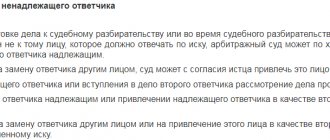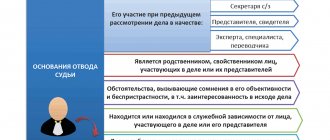If you need to review your case in court, there are three main ways:
- Use our service to familiarize yourself with the case.
- Hire a lawyer or law firm for this task.
- Go to court yourself.
With the first method, everything is clear - we provide services for familiarization with the case in any court in Russia, we do it efficiently and inexpensively (if there are no delays in court, then also quickly). All that is required of you is to provide us with a power of attorney from one of the participants in the process, we will take care of the rest. More details about our service are described in the previous post.
The second method is more hassle - you need to find a law firm in the right city, not go wrong with the price, and agree on everything. For a lawyer, this is not a core and not the most interesting task, so be prepared to impose services. In general, it depends on your luck.
Finally, the third method - going to court on your own - is the most time-consuming, so below we will talk in detail about how to independently familiarize yourself with the case materials in court.
How to properly familiarize yourself with the materials of a court case
Acquaintance with the materials of the court case should take place in a quiet and calm atmosphere, always without haste. As a rule, experienced lawyers are assisted in this by their young assistants. They go to court and copy (or photograph) the case materials. Further, for example, in civil proceedings, the lawyer gets acquainted with the arguments presented by the other side and prepares arguments in his favor. Lawyers also check the procedural execution of documents. For example, incorrectly formatted physical evidence allows you to recognize it as inadmissible and allows you not to refer to it when motivating the decision. Thus, the right to be familiar with the case materials is very important and cannot be neglected. A timely identified inaccuracy can radically affect the outcome of the case.
Process of obtaining case materials
Familiarization with the case materials in court is a trivial task, but often quite labor-intensive and time-consuming, so we will divide everything into several blocks.
Preparation
First you need to call the court and find out if it is possible to familiarize yourself with the case that interests you. Usually there is a telephone number for the information office on the court’s website; if not, call the secretary or the office. To make the call go smoothly, you need to be prepared to provide some information. Typically, in addition to the case number, court officials need to know the name of the judge, as well as which party you represent. Information about the judge and the parties can be found on the website of a particular court by entering the case number in the search box. To obtain information about arbitration cases, you can use the file index of arbitration cases - kad.arbitr.ru
Please be patient before calling - sometimes it takes several days to reach the busiest ships.
But you got through right away, and if everything is fine (your case is not in the archives, not with the judge, or not sent to another authority, for example), then you will be scheduled for the next possible date for review. In some courts you can get acquainted with the case the next day, and in others you will have to wait several weeks - it all depends on the workload of the court. Thus, in the Arbitration Court of St. Petersburg and the Leningrad Region, the average registration period for review is 2-3 weeks. However, if there is a court hearing in your case soon, then in most cases you will be given the opportunity to familiarize yourself with the case out of turn.
Request for familiarization with the case
Each court has its own rules. This also applies to applications for familiarization with the case. In some courts, without a pre-submitted petition, you will not even be recorded for examination. Some courts allow you to familiarize yourself without an application at all. Somewhere you can submit an application online (by email or through a file of arbitration cases, for example), somewhere you can bring it with you and submit it right before receiving the case materials. You can find out about the need to file a petition to familiarize yourself with the case materials by calling the court.
The application is written in free form; a sample request for familiarization with the case can be found on our blog.
Obtaining case materials in court
When going to court, don’t forget your passport and leave all sharps and firearms at home - even with a tiny pocket knife you may not be allowed into the courthouse.
So, you came to the court at the appointed time, found the familiarization room and stood in line. They gave you a file, and in return they took your passport. A file may contain several volumes, and a volume may contain as many sheets as desired (but usually no more than 150). You can leaf through the case (without taking the materials out of the office!) until the end of the familiarization office's opening hours, however, some courts have introduced a time limit - an hour or an hour and a half.
As a participant in the trial (or a participant’s representative by proxy), you can familiarize yourself with the case in any form convenient for you - leaf through the case with a smart look, make extracts, take photos or even videos. When reviewing the case, our specialists photograph all volumes of the case from cover to cover, page by page. In order to take high-quality photographs of all pages of the case, you need to find the most well-lit place in the familiarization room (usually the lighting in court rooms is bad) and arrange the case materials so that the shadow of the camera does not fall on them. It usually takes 20-30 minutes to photograph one volume. The work is monotonous, so we do not recommend photographing more than 4-5 volumes in one go, otherwise the quality will suffer. It is better to negotiate with the court employee and come again the next day.
When you are finished with your review, return the case and collect your passport. Some courts require you to leave a record of familiarization (date, full name, signature, sometimes passport data) on the back cover of the case in a special column.
Congratulations! You have read the case.
Introduction to civil cases
Familiarity with a civil case is a necessary process in court. This is the only way to build a defense tactic, and also, in case of dissatisfaction with the court decision, to collect the documents necessary for an appeal. At what stages of the consideration of the case can you familiarize yourself with its materials:
- immediately upon receipt of notice of the filed claim
- in the period between the main hearings and the preparatory
- after the announcement of the verdict, but before the end of the period allocated for the appeal
Not any person can gain access to the case materials, but only those related to the process. These are:
- plaintiff, defendant, as well as third parties
- their representatives (legal and by proxy)
- judges and court staff involved in this process (also prosecutors)
None of the listed persons has the right to get acquainted with the case in the absence of an identity card, even court employees. Evidence of relevance to the case must also be provided. For example, a representative will only need a power of attorney.
Procedure for familiarization with a civil case
First, you need to arrive at the place where the case is being considered, taking with you an application requesting the extradition of the case for consideration. The judicial officer authorized to transfer materials is obliged to accept the application and check the documents. Secondly, if everything is in order, an employee will accompany you to a separate room for viewing. The time for studying materials is unlimited. In this case, the court employee must inform the bailiff. Further, documents can be rewritten, copied, photographed, and you can also take an unlimited number of notes. As we found out, any person related to this process can get acquainted with the documents in the case. However, it is more expedient and effective for an experienced lawyer to study the case, since he sees procedural documents much more often than an ordinary person. As a rule, a case may contain more than one volume. A competent lawyer knows how to carry out this procedure with greater productivity and what points need to be paid more attention to.
The procedure for familiarizing with the case materials of participants in civil proceedings
Lawyer Antonov A.P.
Article 35 of the Code of Civil Procedure of the Russian Federation provides for the right of persons participating in the case to familiarize themselves with the case materials, make extracts from them, and make copies.
The procedure for familiarizing yourself with the materials of a civil case in courts of general jurisdiction is provided for by three instructions:
— Instructions for judicial records management in the district court, approved. By Order of the Judicial Department at the Supreme Court of the Russian Federation dated April 29, 2003 N 36 (hereinafter referred to as Instruction dated April 29, 2003 N 36);
— Instructions for judicial records management in the supreme courts of republics, regional and regional courts, courts of federal cities, courts of the autonomous region and autonomous districts, approved. Order of the Judicial Department at the Supreme Court of the Russian Federation dated December 15, 2004 N 161 (hereinafter referred to as Instruction dated December 15, 2004 N 161);
— Instructions for judicial records management in courts of appeal of general jurisdiction, approved. By Order of the Judicial Department at the Supreme Court of the Russian Federation dated October 1, 2019 N 225 (hereinafter referred to as Instruction dated October 1, 2019 N 225).
It is necessary to take into account that the procedure and deadlines for issuing court cases in a court of general jurisdiction for review are established by the chairman of the court (clause 14.1 of the Instruction dated April 29, 2003 N 36; clause 16.1 of the Instruction dated December 15, 2004 N 161, clause 13.1 Instructions dated October 1, 2019 N 225).
The familiarization schedule is brought to the attention of court visitors by posting it on information stands and on the official websites of the courts on the Internet.
Materials of a civil case may be provided for review to persons participating in the case (their representatives) and other participants in the process on the basis of a written application and upon presentation of relevant documents.
Thus, according to clause 14.1 of Instruction No. 36 dated April 29, 2003, in order to become familiar with the case materials, persons present:
1) identification document (passport of a citizen of the Russian Federation, service ID, lawyer’s ID, etc.);
2) a document confirming the authority of the representative (power of attorney).
According to clause 14.2 of Instruction No. 36 dated April 29, 2003, persons are familiarized with the materials of the court case (other materials) on the basis of their written application (Form No. 62), on which the judge in whose proceedings the court case is (or was), and in his absence - the chairman of the court (or his deputy) or another person authorized by him makes an appropriate note about the order to the court staff member to familiarize himself with the case materials. This application is filed in the file, and if a power of attorney is presented, a copy of it is also attached to the file.
It is necessary to keep in mind the provisions of Part 2 of Art. 49 of the Code of Civil Procedure of the Russian Federation, which states that lawyers and other persons providing legal assistance who have a higher legal education or an academic degree in a legal specialty can act as representatives in court, with the exception of cases considered by magistrates and district courts.
Accordingly, if there are conditions for this, the representative must attach a duly certified copy of the diploma to the application for familiarization with the case materials and present its original to the court employee before issuing the case for familiarization.
Failure to provide these documents may result in refusal.
At the same time, as explained by the Appeal Ruling of the Appeal Board of the Supreme Court of the Russian Federation dated November 25, 2014 N APL14-575, the form for drawing up an application for familiarization with a court case is not recognized by the instructions as mandatory for the applicant, but is exemplary for use in the work of the court apparatus.
Accordingly, a person applying to familiarize himself with the case materials has the right to use any form containing the necessary notes and details.
In paragraph 14.2 of the Instruction dated April 29, 2003 N 36, it is explained that familiarization with cases (other materials) must take place in a court premises specially equipped for this purpose in the presence of an authorized employee of the court apparatus in conditions that exclude the seizure, damage, or destruction of materials files, as well as making corrections and additions to them, transferring them to another person.
A note about familiarization with the case is made on the information sheet.
After familiarizing yourself with the court case (other materials), an authorized employee of the court apparatus, in the presence of the person who has become familiar with the court case (other materials), checks the status of the case and the presence of all documents in the case, makes a note in the application (Form No. 62) to the effect that that the case has been returned. If, after the return of the case, an authorized employee of the court staff reveals that the case materials have been seized, damaged, as well as corrections and additions have been made to them, the chairman of the court or his deputy is immediately informed about this.
With the development of information technology, some courts of general jurisdiction have provided the opportunity to familiarize themselves with evidence and other documents attached to the case materials in electronic form.
By virtue of clause 14.2.1 of the Instruction dated 04.29.2003 N 36, familiarization with evidence and other documents attached to the case materials in electronic form (audio and video recordings, etc.) is carried out in accordance with the procedure established by clause 14.2 and 7.12.1 Instructions (the procedure for familiarizing yourself with the audio recording of the court session attached to the minutes of the court session).
According to clause 14.6 of Instruction No. 36 dated April 29, 2003, the right to make copies of documents from the case materials at one’s own expense, including using technical means, is granted to the parties and other persons participating in a civil case, as well as their representatives (Part 1 Article 35 of the Code of Civil Procedure of the Russian Federation).
These persons make copies upon written application in the manner established by the chairman of the court or the judge presiding over the case. This written statement with the authorizing resolution of the chairman of the court or the judge presiding over the case is filed in the court file.
Copies made by the listed persons at their own expense from the materials of the court case, including with the help of technical means, are not certified by the court.
It must be taken into account that court employees are not responsible for the identity of copies (photocopies) of documents produced by persons participating in the case, and therefore do not certify or certify such documents for their compliance.
Similar provisions are provided for in Instructions dated December 15, 2004 No. 161 and Instructions dated October 1, 2019 No. 225.
The appendices to the orders of the Judicial Department that approved these instructions provide sample forms of applications for familiarization with the case materials.
In addition, application forms for familiarization with the case materials are posted on the official websites of the courts on the Internet.
If a participant in the case plans to make copies of the case materials using their own technical means (including photography), this must be indicated in the application.
If the application for familiarization is signed by a representative, then a certified copy of the power of attorney is attached to it.
A participant in the case (his representative) fills out an application and sends it to the court in the following ways:
- in person through the court office;
- via postal service;
- by fax, email (if such a communication channel is provided by the court for filing procedural documents);
- by filling out an application form on the official website of the court on the Internet (if such a communication channel is provided by the court for filing procedural documents).
After receiving a message about registering an application to familiarize yourself with the case materials, you must wait for a response from an authorized court official setting a date and time of arrival to familiarize yourself with the case materials in accordance with clause 14.2 of the Instruction dated April 29, 2003 N 36.
To do this, in order to simplify communication with a representative or participant in the case, it is necessary to indicate available telephone numbers and other contacts in the application.
Since the application for familiarization with the case materials does not require the appointment of a court hearing, its consideration is carried out within a reasonable time (usually 5 - 10 working days).
The procedure for issuing court cases located in the court archives, as well as making copies from them, are regulated by the Instruction on the procedure for organizing the acquisition, storage, recording and use of documents (electronic documents) in the archives of federal courts of general jurisdiction, approved. By Order of the Judicial Department at the Supreme Court of the Russian Federation dated March 19, 2019 N 56 (hereinafter referred to as Instruction dated March 19, 2019 N 56).
By virtue of clause 11.5 of Instruction No. 56 dated March 19, 2019, the release of court cases (other materials) in the archives for review by persons participating in the case, their representatives, as well as other persons is carried out in the manner established by the chairman of the court, on the basis of their written application and upon presentation of documents in accordance with Appendices No. 1 to Instructions No. 36, 161.
The indicated forms are exemplary, however, to simplify the familiarization procedure, it is recommended to use a form specially provided for these purposes.
Familiarization with the court case must be carried out in a court premises specially equipped for this purpose in the presence of a court archive employee (another authorized employee of the court apparatus) under conditions that exclude the seizure, damage, destruction of case materials, as well as the introduction of corrections and additions to them, and their transfer to another person.
A note about familiarization with the case is made in the document use sheet (Appendix No. 27 to Instructions dated March 19, 2019 No. 56). If the person who has familiarized himself with the case refuses to sign, a record of familiarization with the case is made by an employee of the court archive (clause 11.6 of the Instructions dated March 19, 2019 N 56).
Sincerely, lawyer Anatoly Antonov, managing partner of the law firm Antonov and Partners.
Still have questions for your lawyer?
Ask them right now here, or call us by phone in Moscow +7 (499) 288-34-32 or in Samara +7 (846) 212-99-71 (24 hours a day), or come to our office for a consultation (by pre-registration)!
Familiarization with the criminal case
There are some peculiarities when viewing criminal cases. For example, the full materials of the case can be reviewed only after the completion of the preliminary investigation stage. Before this, you can familiarize yourself with the relevant protocols of investigative actions that took place with the participation of the accused (suspect).
What things should you focus on when reading a criminal case?
Firstly, it is necessary to check that all sheets in the criminal case are numbered and filed. Otherwise, this remark should be entered into the minutes. An important step on the part of the defense is to copy the materials of the criminal case. Since the protocol records only the total number of sheets included in the case, unscrupulous persons, theoretically, can replace any document (for example, with a missed deadline) while maintaining the total number of pages. Having copies will make it easier for the lawyer to prove inadmissible evidence. An important right of a lawyer (as well as his client) is to file motions after familiarization with the case. This may be necessary, for example, when information has become known that can have a significant impact on the further consideration of the case. As for the time during which the case can be studied, the defense side is not limited in any way. Naturally, obvious “delaying” is unacceptable.
When studying the documents, pay attention to the following provisions:
- Are the necessary signatures and dates affixed everywhere, are the procedural documents translated into the language that is native to the accused.
- The relationship between the charges recorded in the decision to charge as an accused and the text of the indictment.
- Check the list of people who must be summoned to the courtroom.
- Check the accuracy of the accused's personal information.
- Check whether the documents contain an explanation of the rights of the accused.











